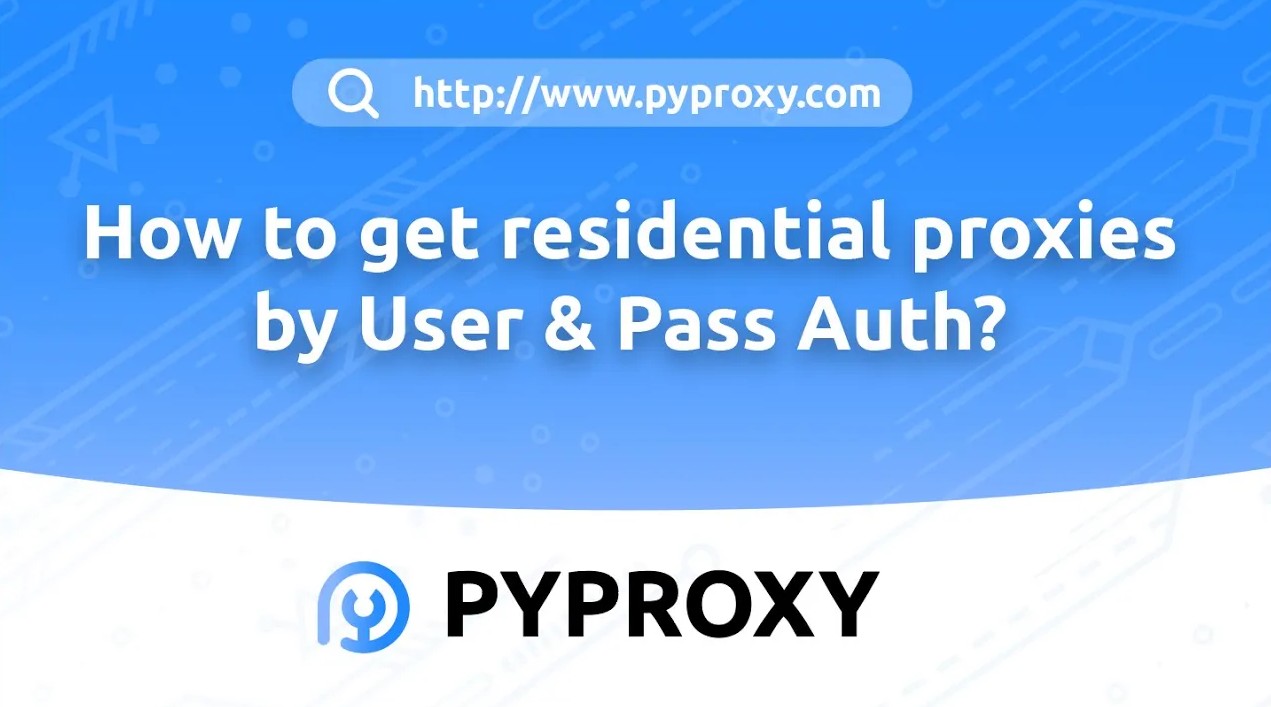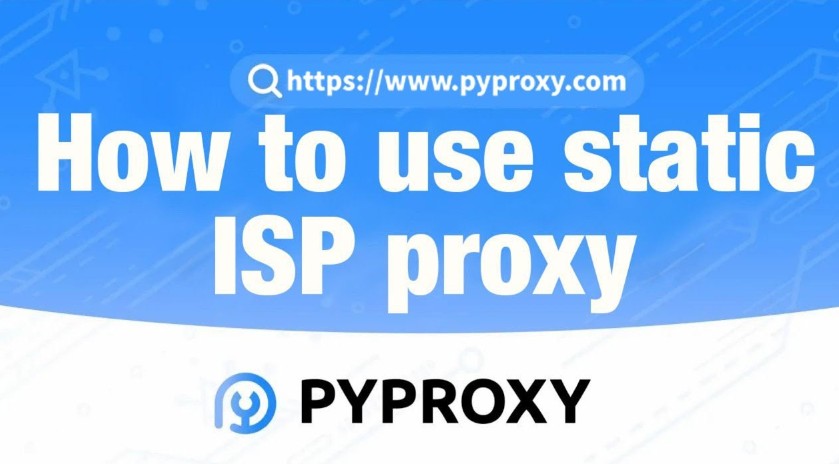Why choose residential proxy server SockS5 instead of other proxy types?
In the rapid development of the Internet, proxy server has become an important tool for many individuals and enterprises to ensure online anonymity, improve access speed and break through geographical restrictions. There are various types of proxies, among which residential proxy and socks5 proxy are currently the two most common types. Especially when users face high demand network activities such as data scraping, large-scale network testing, or avoiding geographical blockades, the residential proxy server SockS5 has unique advantages. So, why choose residential proxy server SockS5 instead of other proxy types? This not only involves the security, reliability, and anonymity of agents, but is also closely related to the stability, speed, and cost-effectiveness of network activitiesThis article will delve into the significant advantages of residential proxy server Socks5 compared to other common proxy types such as HTTP proxy, HTTPS proxy, and regular Socks proxy, helping users make the most suitable choice based on their own needs. We will start from the basic principles of agents and explore the specific comparisons between residential agents and other types of agents in terms of security, efficiency, flexibility, and applicable scenarios, ultimately helping users understand why SockS5, a residential agent server, is the best choice in certain scenarios1. What is Residential Proxy Server Socks5 Before understanding why to choose the residential proxy server SockS5, it is necessary to first provide a brief overview of the residential proxy server and SockS5 proxyResidential proxy server refers to a server that provides proxy services through the IP address of real residential users. These IP addresses usually come from ordinary household broadband users, so they appear to be legitimate and belong to real households. Residential proxy servers are usually not recognized by the target website as proxy requests, which gives them significant advantages in avoiding IP blocking and enhancing concealmentSocks5 proxy is a proxy protocol that can transfer communication traffic between clients and target servers. Unlike traditional HTTP proxies, Socks5 proxy does not interfere with the transmitted traffic, making it compatible with different types of applications and protocols, particularly suitable for scenarios that require high privacy and securityWhen these two are combined, the residential proxy server Socks5 can provide stable, efficient, and covert network proxy services. This combination not only retains the high anonymity and low blocking risk of residential agents, but also has the flexibility and compatibility of Socks5 agents, making it an ideal choice for many users and businesses that require large-scale network access2. Advantages of Socks5 Residential Proxy ServerWhen choosing proxy services, users often need to make decisions based on their application scenarios, needs, and budget. Compared to other common proxy types, residential proxy server SockS5 has significant advantages in multiple aspects2.1 High anonymity and concealmentCompared to ordinary public agents such as data center agents, residential agents provide services through real users' IP addresses, making them less likely to be detected by target websites. When using a regular proxy, the target website is usually able to easily recognize that the request comes from the proxy server and may block or restrict it. As residential agents use the IP addresses of ordinary household users, it is difficult for websites to discover their true identities, thus avoiding the risk of being blockedIn addition, Socks5 proxy itself also has high anonymity. The SockS5 protocol does not modify or filter the transmitted data, making it more difficult to detect. Therefore, combining residential agents with the SockS5 protocol can greatly enhance user anonymity and concealment, reducing the probability of being identified as a robot or proxy user2.2 Higher reliability and stabilityResidential proxy servers are usually supported by stable broadband connections and have strong reliability and stability. In scenarios with high demands such as data capture and automated testing, stability is the key to ensuring smooth work progress. However, data center agents and other types of agents may experience unstable connections or even data loss due to high concurrency usage or network congestionSocks5 proxy has significant advantages in stability due to its simple design, low latency, and no traffic restrictions. When it is necessary to maintain a connection for a long time or make large-scale network requests, the residential proxy server SockS5 can provide more stable services, avoiding the impact of connection interruptions or performance issues on the operation process2.3 Stronger Applicability and FlexibilityOne of the biggest advantages of Socks5 proxy is its support for multiple protocols and applications. Whether it's HTTP HTTPS, Both FTP and SockS5 can efficiently forward data packets without decoding or modifying them. For users who need to perform different types of network operations, Socks5 proxy provides great flexibilityBy combining residential agents with Socks5, users can achieve stronger applicability in various application scenarios. For example, residential agency Socks5 can be widely used in large-scale e-commerce crawlers, SEO tools, advertising verification, social media operations, and other activities that often require processing multiple different protocol data streams simultaneously and require high efficiency and stability of operations2.4 Lower lockdown riskCompared to data center agents, residential agents provide services through the IP addresses of ordinary household users, making them more covert to use compared to data center IP addresses. Due to a single source, data center agents are easily discovered and blocked by websites. And the IP addresses of residential agents come from real users around the world, making them have a lower risk of being blocked. Combining the advantages of the SockS5 protocol, residential proxy servers can not only effectively avoid website blocking, but also maintain high access speed and anonymity2.5 Higher success rate and coverageFor users who need to engage in large-scale data scraping or e-commerce product pricing monitoring activities, success rate is the key to determining whether the task can be successfully completed. Residential proxy servers typically have a higher success rate due to their high anonymity and concealment. In contrast, other types of agents, such as data center agents or public agents, have lower success rates due to their ease of detectionIn addition, the IP addresses of residential agents are widely distributed, which can effectively cover different regions and countries around the world, thus meeting the needs of users who need cross regional access and breaking geographical barriers. This is particularly important for users who need to simulate visits from different regions around the world, such as conducting multi regional e-commerce product crawling or advertising verification activities. The residential proxy server SockS5 can provide a wider coverage3. Application scenarios of residential proxy server Socks5The residential proxy server SockS5 has a wide range of applicability in multiple application scenarios, especially in the following areas, where it demonstrates significant advantages3.1 Data Capture and Crawling TechnologyIn the field of web crawling, the residential proxy server SockS5 is an ideal choice for large-scale data scraping. Crawlers usually need to make a large number of requests in a short period of time. If a regular proxy server is used, the target website may detect abnormal traffic and block the proxy. Using residential proxy Socks5, as it comes from real users' IP addresses, can effectively reduce the risk of being blocked, thereby improving the success rate of data capture3.2 E-commerce and SEO ToolsE-commerce platforms and SEO tools often require accessing websites across multiple accounts or different regions for product monitoring, price comparison, advertising verification, and other operations. The high anonymity and global coverage of residential agency Socks5 make it the best choice for e-commerce and SEO tools. Users can bypass regional blockades through residential agents, obtain real-time data from around the world, while maintaining concealment and avoiding detection of abnormal activities by the platform3.3 Social Media Management and Account OperationsWhen managing and automating a large number of accounts on social media platforms, the residential proxy server SockS5 can effectively prevent accounts from being banned due to frequent login or device changes. By using residential IP addresses distributed around the world, users can simulate real user access behavior and reduce the risk of being flagged as bots or abnormal activities by the platform. This is particularly significant for social media marketers4. Conclusion: Why choose residential proxy server Socks5In summary, the residential proxy server SockS5 has significant advantages over other types of proxies such as HTTP proxy, HTTPS proxy, and regular Socks proxy in terms of concealment, stability, applicability, low blocking risk, and success rate. For users and businesses that require large-scale network operations, high anonymity, and low blocking risks, residential proxy server Socks5 is an ideal choiceWhether for data collection, e-commerce monitoring, or social media management, the residential proxy server Socks5 can provide stable, efficient, and secure proxy services to safeguard users' online activities. Therefore, among many types of agents, the residential proxy server Socks5 is undoubtedly the most valuable and practical choice
2024-12-17
























































